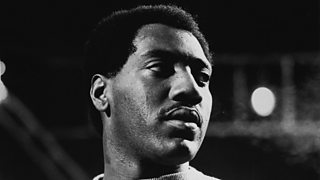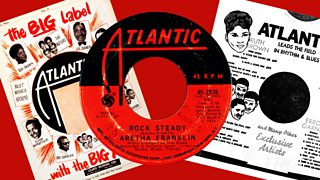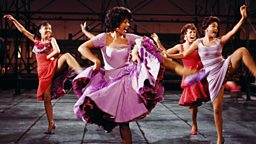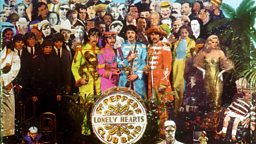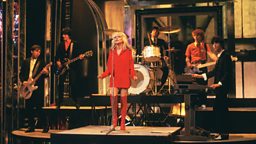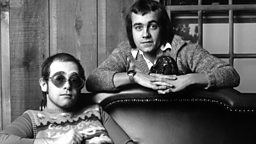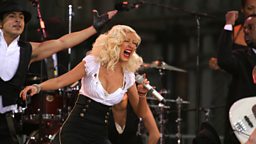Seven unlikely stars who scored big with Stax songs

Satellite Records was founded in Memphis, Tennessee in 1957, changing its name to Stax in 1961. Its house band was instrumental in forging the sound of Southern soul, providing a rousing platform for singers such as , and . Stax survived the tragic loss of its biggest star - who died in a plane crash in 1967, aged just 26 - to become one of America’s most iconic labels, its finger-snapping logo instantly identifiable by music lovers worldwide.
Stax's catalogue has proved remarkably durable, providing hits in every era right up to the present. Here are some of the more unlikely characters to grab a bit of that Memphis soul magic.
1. Salt-N-Pepa with En Vogue

Whatta Man, 1993 (originally by Linda Lyndell, 1968)
Radically for the American South in the late 1950s and early 1960s, Stax was always a racially mixed operation; Booker T. & The M.G.s comprised two black musicians and two white. It was certainly no big deal for Stax that was a white singer raised in the gospel and R&B tradition. But after Lyndell scored a minor hit in 1968 with the effusive What A Man, she received threats from local white supremacist groups and retired from performance as a result. Thankfully there is a happy ending to the tale: after rappers teamed up with to score a big transatlantic hit with the song in 1993 (retitled Whatta Man), Lyndell was lured out of retirement and sang What A Man live for the first time ever at the opening of the Stax Museum of American Soul Music in 2003.
2. Michael Bolton
(Sittin' On) The Dock of the Bay, 1987 (originally by Otis Redding, 1968)
Otis Redding wrote the lyrics for this all-time classic while enjoying a rare day off on a rented houseboat in Sausalito, California, in the summer of 1967. On 7 December that year, Redding went into the studio with M.G.s guitarist Steve Cropper to record it. Three days later, Redding was dead. In the above clip, Cropper explains the emotional process he went through to finish the song, which became the first posthumous single to top the charts in America. It has since been covered numerous times, most successfully by Michael Bolton. Apparently, his 1987 version - a No. 11 hit in the US - moved Otis’s widow Zelma to tears. You may not feel the same…
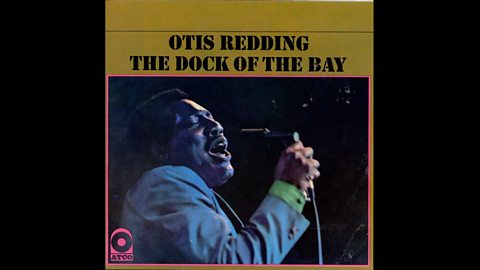
'Hardest thing I ever did'
Steve Cropper on how he finished Otis Redding's last record posthumously.
3. David Bowie

Knock on Wood, 1974 (originally by Eddie Floyd, 1966)
Steve Cropper also co-wrote this humdinger, which snuck into the US Top 30 on its original release in 1966. He claims it was written in the middle of an electric storm, hence the famous line: “It’s like thunder, lightning / The way you love me is frightening”. was a fan, covering it on his 1974 Diamond Dogs tour at the height of his ‘plastic soul’ period. Released as a single from the David Live album, it reached No. 10 in the UK charts. However, it was disco singer who would fully realise the song’s potential, scoring a massive worldwide hit with her irrepressible take of Knock on Wood in early 1979 (and again in 1985). Fun fact: Stewart’s version was co-produced by Simon May, who also wrote the theme tunes for EastEnders and Howard’s Way.
4. Bruce Willis
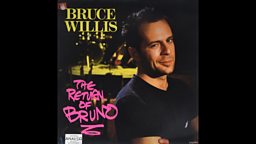
Respect Yourself, 1987 (originally by The Staple Singers, 1971)
Pan-generational gospel-soul outfit were well-established before they signed to Stax in 1968, but it was in Memphis - and subsequently Muscle Shoals, Alabama, home of the famous Muscle Shoals Sound Rhythm Section - where they found the funk. Empowering anthem Respect Yourself was a sizeable crossover hit in late 1971, reaching No. 12 in the US. However, this chart placing was bettered in 1987 by, of all people, future Die Hard vest-wearer Bruce Willis, enjoying a brief singing career off the back of his popularity in the TV series Moonlighting - specifically an episode in which he sings ’ 1966 hit Good Lovin’ while dressed as Petruchio from Taming of the Shrew. Yes, that really happened.
5. Alessia Cara
Here, 2015 (samples Ike's Rap II by Isaac Hayes, 1971)
At the beginning of his Stax career, was content with a behind-the-scenes role, as a session player and songwriter of hits such as Sam & Dave’s Soul Man and Hold On, I’m Comin’. As Stax vice-president Al Bell recounts in the clip below, he had to ply Hayes with booze to get him to front his own album. However, Presenting Isaac Hayes flopped and he retreated to the sidelines until Bell forced him to try again after Stax lost custody of their lucrative back catalogue. This time Hayes was ready, conjuring up the sultry, spiritual persona that we know and love on albums like Hot Buttered Soul and Black Moses, from which Ike’s Rap II is taken.
Two decades later, the instrumental interlude became a cornerstone of Bristol’s trip hop movement after both and sampled Ike’s Rap II for their songs Glory Box and Hell Is Round The Corner respectively. Awkward! Ike’s Rap II cropped up again last year on ’s breakout single Here.
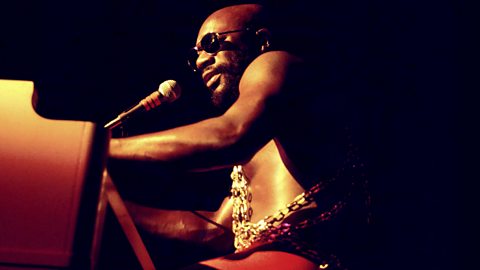
'I had to really do some persuading to get Isaac to record'
Producer Al Bell on how a drink or two convinced a reluctant Isaac Hayes to record.
6. 911 with Fann Wong

Private Number, 1999 (originally by Judy Clay and William Bell, 1968)
One of the classiest songs in the Stax catalogue, this duet - originally intended for Carla Thomas and Otis Redding - reached No. 8 in the UK charts in 1968. It certainly didn’t deserve its tinny butchering by second-division boyband , whose chemistry-free team-up with Singaporean singer Fann Wong felt like a cynical attempt to break 911 into the Asian market (and vice versa). Nonetheless, it outperformed the original, reaching No. 3 in 1999. ’s recent version with is rather more reverent, and kicks off 大象传媒 Radio 2’s , which Knight also presents.
7. Homer Simpson

Born Under a Bad Sign, 1990 (originally by Albert King, 1968)
Blues guitarist and singer was already in his mid-40s when he fetched up in Memphis in 1966 to record a run of influential singles with the Booker T. & The M.G.s. In the clip below, Stax stalwart recalls working with the ‘Velvet Bulldozer’ (“a giant of a man but just like a big ol’ pussycat”). One of the tracks they cut together was Born Under a Bad Sign, which became King’s signature tune. It was covered by in 1968 for their third album Wheels on Fire, making clear just how much Eric Clapton took from Albert King’s searing guitar style. Eternal loser Homer Simpson also had a crack at the song for 1990 album The Simpsons Sing the Blues, subtly altering a couple of lyrics: “You know, beer and bowling is all I crave / A big bag of pork rinds, gonna carry me to my grave!”

William Bell on recording Born Under A Bad Sign
William Bell on how he had a verse, a chorus and a bassline for Albert King's blues hit.
